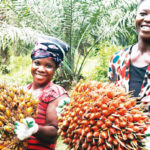THERE is general consensus that there is genetic resources and biodiversity loss in the world.
The losses in biodiversity and genetic resources are due to so many factors. These factors include fuel wood and charcoal, agriculture, bush burning, construction of roads and buildings, search for food, search for medicine, overgrazing by cattle, wars, terrorism, poor land management, displacement, and loss of landraces due to crop improvement and other factors, such as lower yielding varieties, environmental pollution, pests and diseases outbreak, inadequate knowledge of biology of many plants, urbanisation and population growth explosion.
Nigeria is known worldwide for its great biodiversity of plants that could be exploited and used in several ways as culinary, medicinal, therapeutic and nutritional purposes. This great diversity of plant species found in Nigeria is due to different ecosystems, habitats and tropical climate in Nigeria.
NACGRAB has about ten thousand accessions of seeds conserved in its short term and long-term gene bank. These seeds are sometimes regenerated to maintain viability.
NACGRAB also has over three thousand plants species conserved as live collections in about 12 hectares of land. Parts of these plants are in-situ collections while some are ex-situ collections. There is a medicinal herb garden located on this land as well.
NACGRAB also has domestic indigenous collections of animal genetic resources. These include West African Dwarf Sheep, West African Dwarf Goat, Frizzle feather chickens, Naked neck chickens and rabbits.
However, there is an important biodiversity that we did not value in Africa. They are six legged animals in the phylum arthropoda called insects. Insects are the most speciose class of animals. Nearly a million species of insects have been described while many more insects are yet to be discovered, diagnosed and named especially in the tropics However, an invasive alien insect pest was discovered in Nigeria in 2016 called fall armyworm (Spodoptera frugiperda). It belongs to the family noctuidae. Spodoptera frugiperda is native to tropical and sub-tropical regions of America. It is one of only few insects that periodically disperse and breed throughout the United States of America. The Fall armyworm constitute pests and causes serious damage and destruction to many crops in various areas of South eastern United States, Mexico and Central and South America. It is a long distant migratory transboundary pest. It is an harmful insect pests that has cost America, Africa and other parts of the world fortunes. It is rapidly spreading out African continent (2016), South –East Asia (2018) and Southern part of China (2019). Fall armyworm is polyphagus and is found not only on poaceae (maize, sorghum, rice etc) but it is found on peanuts (groundnut), cotton, brassicaceae, cucurbitaceae and solanaceae. It is reported to cause extensive damage to oil palm nurseries in Cote d’Ivoire since 2016. Among other plants in the world that serve as host plant for fall armyworm include Bermuda grass, Grass weed(Crab grass), Alfalfa, Barley, Buckwheat, Cotton, Clover, Oat, Millet, Ryegrass, Sugarbeet, Sudan grass, Soyabean, Tobacco, Wheat, Sweet potato, Turnip, Tomato, Cabbage, Cucumber, Apple, Grape, Orange, Pawpaw, Strawberry and a host of others. The damage caused by fall armyworm worldwide is estimated at $13.3 billion and is a major threat to food security.
The use of sophisticated methods especially use of costly insecticides and sometimes application of pesticides are beyond the reach of resources constrained African farmers. However efficacy of some crude extracts of some plants have been proposed in managing the pests. These include Azadirachta indica (Dogoyaro), Chromolaena odorata (Akintola), Tithonia diversifolia (Sepeleba), Adenopus breviflorus (Tagiri) and Mormordica charantia (Ejirin). This can be sprayed into the whorls of cereals or leaves and body of some other plants to manage the fall armyworm.
In conclusion, Nigeria has rich biodiversity that has potential for various uses ranging from environmental, food uses, medicinal importance, crops and animal improvement. God bless Federal Republic of Nigeria as she joins the rest of the world to mark world biodiversity day.
- Dr. Timothy Oluwafemi Ajiboye, biodiversity conservation expert, an entomologist and Assistant Director with National Centre for Genetic Resources and Biotechnology (NACGRAB) is the Principal Investigator for Korea-Africa Food and agriculture Cooperation Initiative (KAFACI), Fall armyworm project in Nigeria.
WATCH TOP VIDEOS FROM NIGERIAN TRIBUNE TV
- Relationship Hangout: Public vs Private Proposals – Which Truly Wins in Love?
- “No” Is a Complete Sentence: Why You Should Stop Feeling Guilty
- Relationship Hangout: Friendship Talk 2025 – How to Be a Good Friend & Big Questions on Friendship
- Police Overpower Armed Robbers in Ibadan After Fierce Struggle






